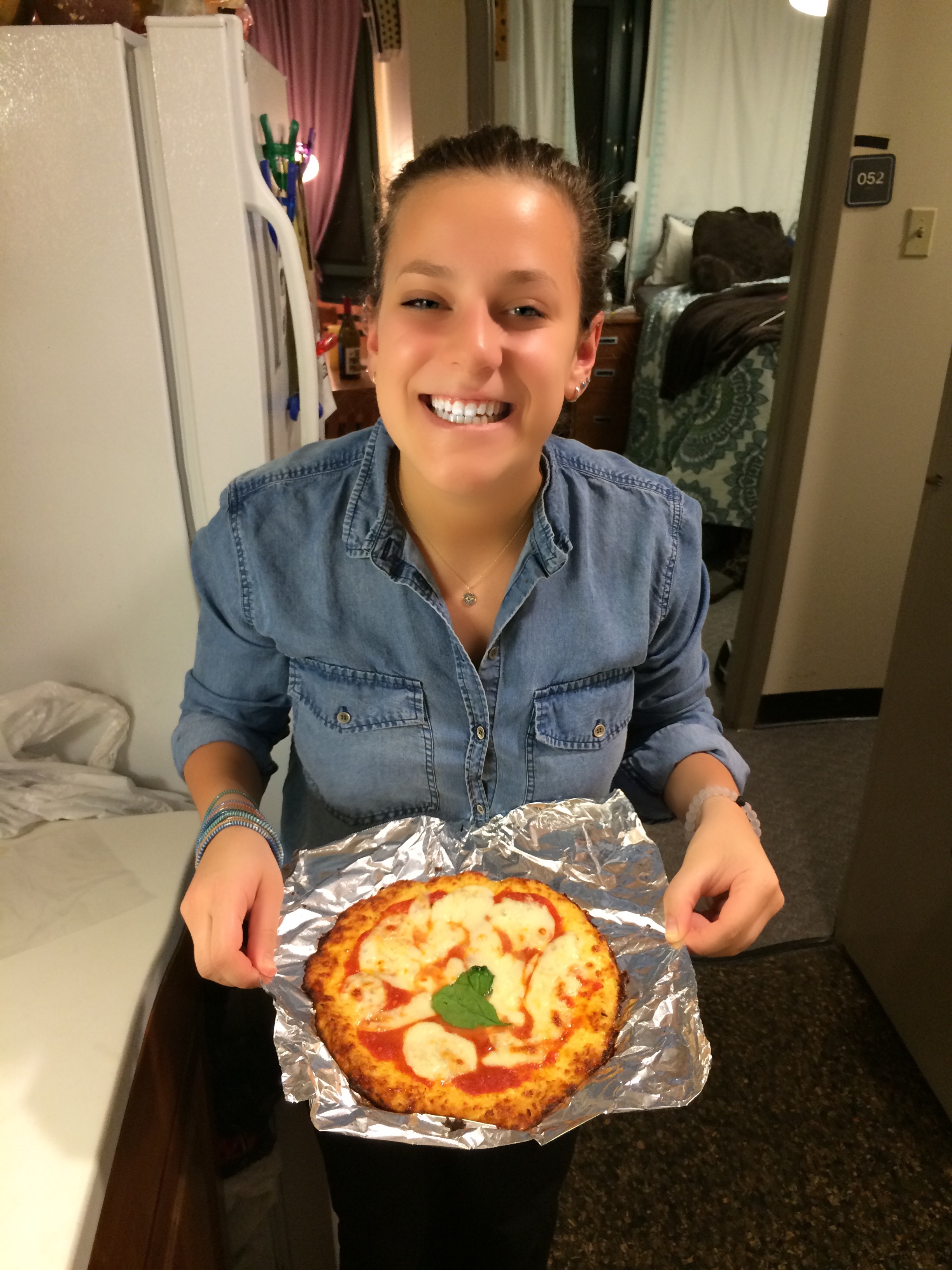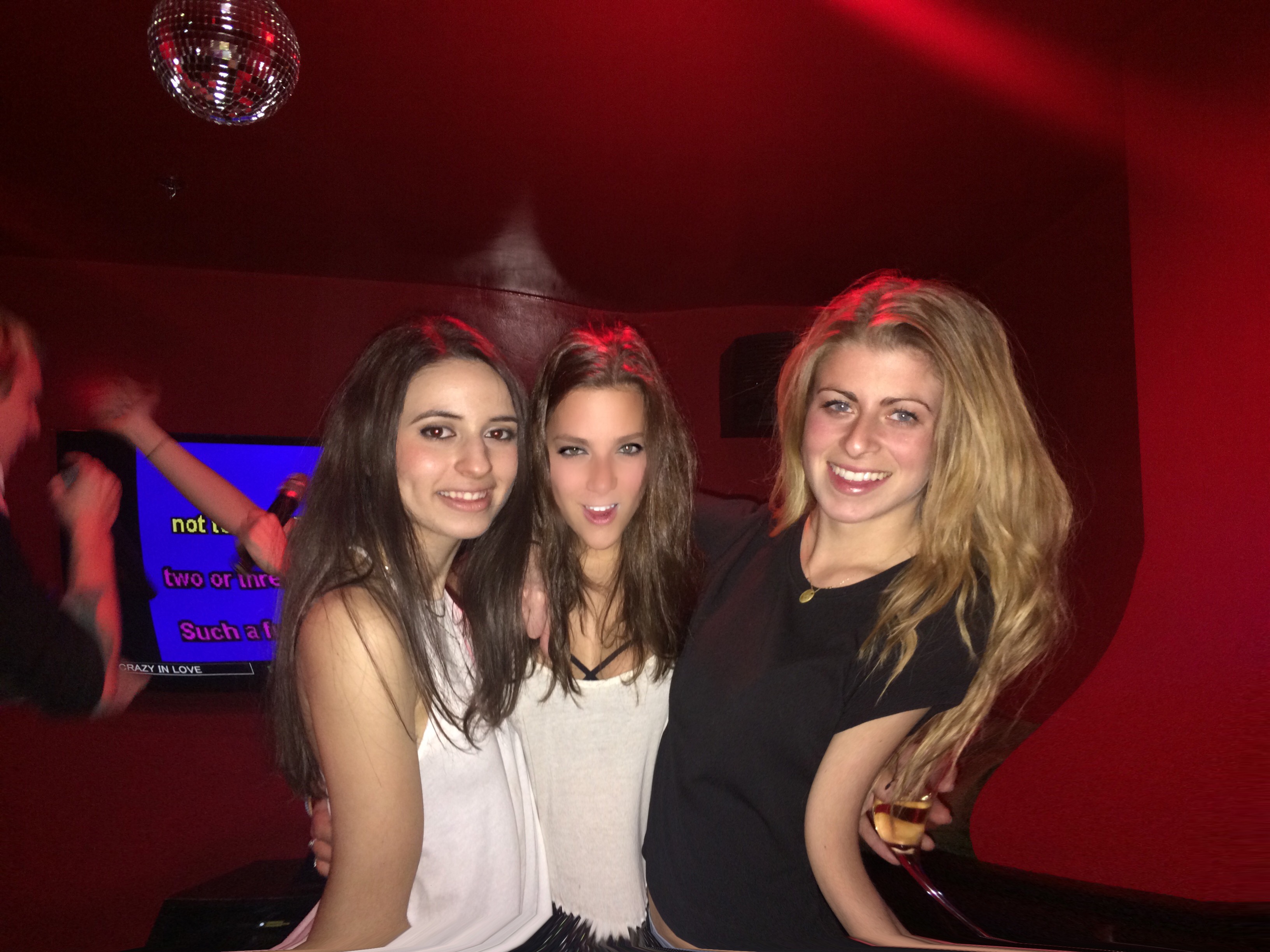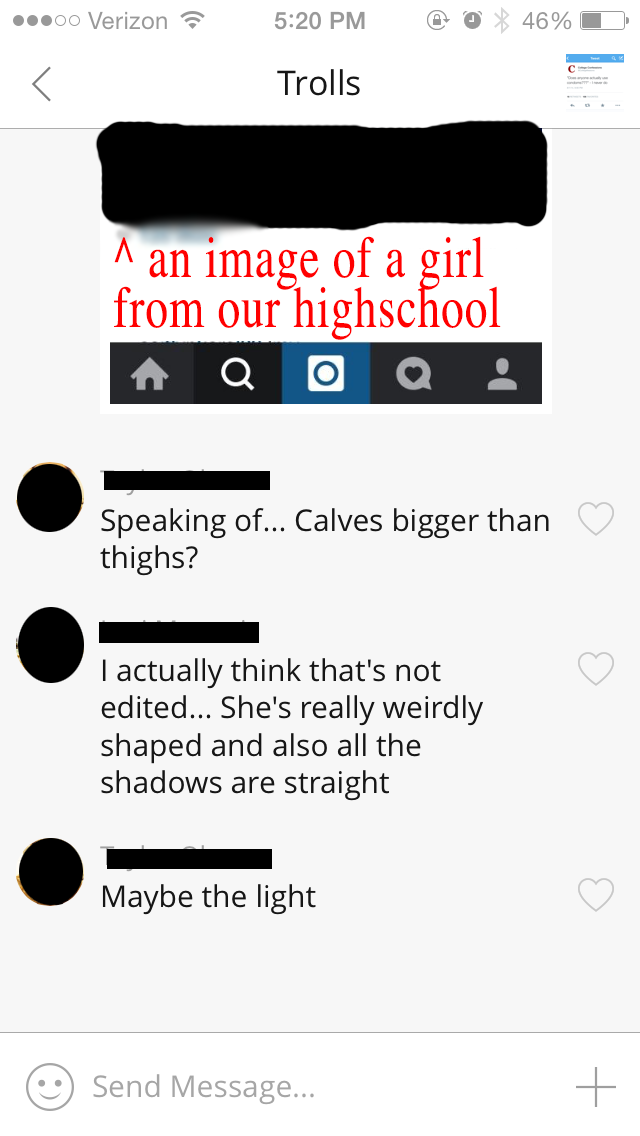I recently did a class project on the popular iPhone mobile app, Facetune. For those unfamiliar, Facetune is an app that brings Photoshop practices to the masses, giving users a simple interface through which they may smooth their skin, slim their features, brighten their teeth, and more. As someone who is not known as being over-concerned with appearances, I am not the typical Facetune user. My recent project, however, involved “Facetuning” photos of myself and uploading them to Facebook every day for a week. I increased the severity of the edits over the course of the week in order to push my “friends” to say something, to call me out on my personal “modifications” (see images below). They didn’t. The final presentation of my experiment can be watched here.


On the surface, the project, and the app in general, raises some interesting questions. Why do we use Facetune and why don’t we talk about using it do we only discuss use of it cattily behind the backs of others?
It’s easy to blame the media for our use of an app like Facetune. Many would say Facetune is appealing because it allows us to edit ourselves as though we were models being airbrushed for a magazine cover. But, at this point, we all know magazine covers are edited. Photoshop in this regard is acknowledged and widely accepted as a process of the commercial media industry. This process of modification, however is not one inherently accepted within our own social media use. No one wants to log on to Facebook and see that their “friends” have transformed into models overnight. No one wants to feel like suddenly they don’t belong or that suddenly they too have to waste spend quality time digitally morphing themselves into something they’re not.
Using Facetune to “airbrush” yourself on Facebook is often just as, if not more, transparent than the airbrush we see in magazines. Your Facebook friends presumably know what you look like IRL (in real life), either from knowing you in some capacity offline and/or from viewing images that others upload of you to Facebook, which are not as self-curated and edited, so they can often spot drastic edits. So who are we trying to kid???? And what are we saying about our self-confidence, our priorities, and ourselves by clearly editing our appearance in photos? Furthermore, what are we saying about Facebook? Are we only on Facebook to create and project a version of ourselves that we feel we can’t achieve in the analog world? I fear this might be so, and that Facebook is therefore becoming quite unhealthy. But even if this is true, even if we are using Facebook to experiment with “better” versions of ourselves, what does Facetune allow us to imagine? A world without pores? A world without noses? These are the visual results that often come out of Facetune usage and, in turn, lead to so much behind the back “gossip.”
I must admit that my perspective is a bit skewed here. I am not writing referring to what I see around Brown’s campus, but rather, what I see occurring back in my somewhat cosmetic hometown. Perhaps more than at Brown, members of my home community do care greatly about how others perceive their bodily looks. On top of this, members of my home community enjoy judging and discussing the looks of their peers and those around them. In my presentation, I use my own Groupme with my close friends as an example of such a gossip source. “Where did her nose go?–” “No nose–” and “Lol–” are common messages sent to the group. And yet when I began heavily editing myself in photos posted to Facebook, no such comments were made in the group…

I don’t mean to criticize my friends here, but more so mean to question the conventions surrounding this bizarre application. Why don’t we call each other out? Why wouldn’t I ask someone about their edited photo[s], not to be cruel but simply to tell them that I like them with pores and a nose and an atomically correct body shape that allows them to stand upright…? I guess we’re all still in a place where self-representation through social media is fragile and complicated. Our relationships to these digital avatars of ourselves are still forming and unclear and constructive criticism is therefore commonly avoided. But, unlike in the analog world, where critique is often hurtful due to a lack of control over our anatomical features, we do control how we choose to edit our digital selves and, when such edits have become so obvious in many regards, I only wish we could openly discuss the results of our attempts at Photoshop for Facebook.